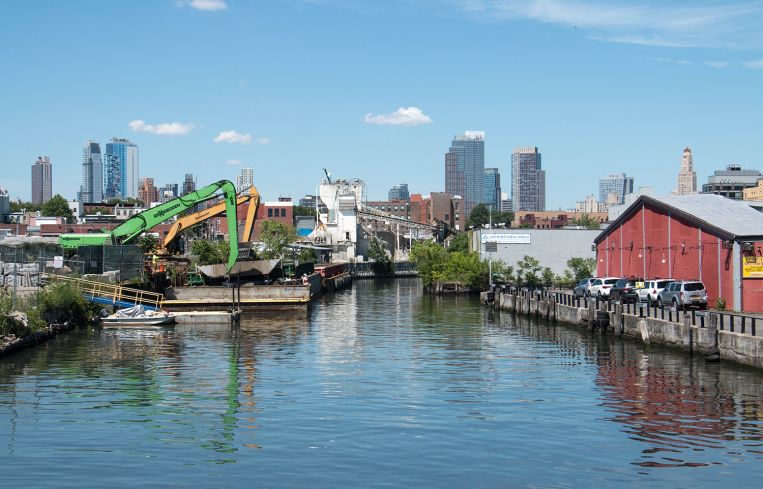New York Releases Zoning Plan for Gowanus Manufacturing Area
By Rebecca Baird-Remba May 17, 2021 5:11 pm
reprints
As New York inches forward with the controversial Gowanus neighborhood rezoning in Brooklyn, the Department of City Planning (DCP) has released a plan for the industrial area along the polluted Gowanus Canal, which calls for denser commercial development, relaxed parking rules, and infrastructure and street upgrades.
The Gowanus Industrial Business Zone includes a diverse array of businesses, from wholesale lumber and flooring shops to artists to recording studios, as well as metalworkers, furniture makers, and more toxic industrial companies like asphalt plants and concrete mixers. The city’s new plan would allow for more industrial development on Second Avenue just east of the canal, as well as in the area between Third Avenue, 12th Street, the Gowanus Expressway and the canal.
A City Planning spokesman emphasized to Commercial Observer that while this is not a current rezoning proposal, it could be used as a template for future land use actions, particularly by private developers.
Between Second Avenue and the canal from Fifth to 12th streets, the city wants to encourage both commercial office and industrial development, along with public waterfront access to the canal.
Finally, along Third Avenue between Seventh and 16th streets, officials hope to see residential and mixed-use development, including multi-story commercial buildings. The western side of Third Avenue has been zoned industrial for the past several decades, which means that residential buildings and homes built before the current zoning code was created in 1961 have not fit in with the zoning.
The city also proposes roadway and street safety improvements along Second and Third avenues, which are heavy truck routes. The city Department of Environmental Protection is also working on $71 million worth of sewer upgrades in the industrial zone, including water main replacements on Third and Fourth avenues, new combined sewer overflow (CSO) infrastructure, and a wastewater treatment plant at the end of Second Avenue.
“During the community planning process for the future of Gowanus, we heard loud and clear — and we 100% agree — that the IBZ along the Canal must be part of this vital work as the IBZ is a source of essential services and jobs for area residents and New York City as a whole,” DCP Director Marisa Lago said in a statement. “The Vision Plan that we’re releasing today contains recommendations for infrastructure and workforce training, and lays out a land use framework that will help keep the Gowanus portion of the IBZ a bustling and dynamic jobs hub for decades to come,” said
Planners will present the proposal for the industrial zone to Brooklyn Community Board 6 on Monday evening.



